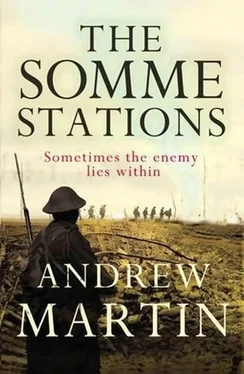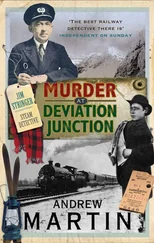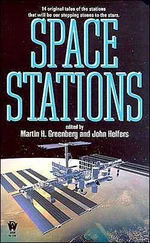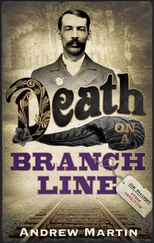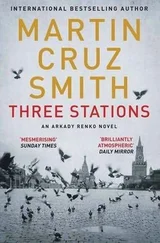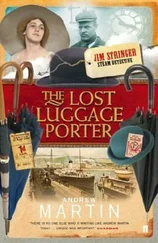The shock of all this was increasing and not decreasing. I turned and faced Tinsley, and said something, but I could not make myself heard over the cracking of the wood from the copse, which was in fact the firing of bullets. The words formed in my head: We are under sniper observation, and Tinsley immediately proved the fact by falling over. He fell both down and away, and something went from him as he fell. The light in the sky then went out, and I saw the flame fall. I saw where it lay in the field – a small, ordinary fire. I had a mental image of a log burning on a fire, and I heard the unnatural squealing of the sap coming from the wood, which became by degrees a whistling.
The shell was on me, and in me – into my leg. I was lying flat under the increasing snow, with the two rifles about me. I turned one way and our brakesmen were coming running. From another direction came an artillery man, shouting:
‘What the hell’s going on? We told the Control to hold you back.’
I saw behind them a figure with a lamp, moving more slowly, and looking half concerned: Oliver Butler, ‘the Control’, who had been told to keep us back. But I was melting into the ground where I lay. I thought: I have one more chance to make a movement before the pain becomes intolerable, but I discovered that I was wrong about that.
When I was half awake, but still under the gas, I looked through a gap in the curtains and saw, in the dawn light, Ilkley Moor, a good deal higher than it had been before, and moving towards this house, and towards me, closing in. It then came to me that this was a great bank of cloud, with a ragged top, but I was still not quite thinking straight, because it seemed very clear that this bank of cloud was called the Western Front, and so the Western Front was coming to Ilkley.
I shifted my position a little, and saw on the bedside table, alongside my pocket book, which was stuffed with letters of recent date from the Chief, a packet of cigarettes. But a smoke was just then out of the question. I knew that I had surfaced, so to speak, only briefly from my long sleep. But at the sight of the carton, I recollected the matter that had plagued me ever since I had come to ‘Ardenlea’, namely the lighting of a cigarette – heard, not seen – at a late stage on the journey back to Albert from Amiens, with Alfred Tinsley sitting before me, and the train crashing over points.
The uppermost parts of cloud were now breaking away from the Western Front, looking first like sea waves, and then floating clear. I was aware of a bad pain in my leg, but it was remote, more like a pain I might be reading about rather than actually suffering. It was time to go back to sleep.
On waking, or rather not quite waking, I saw there was only the Moor beyond the window – the Moor at its normal height, under a sky that threatened snow. The wife came into the room, and it was comical to watch her trying to make an entrance so quietly. She sat down on the visitor’s chair, and I could tell that she did not quite know what to do, so she rose up, and kissed me, then sat down again, looking slightly embarrassed. I liked the grey-blue of her dress, the darkness of her eyes, but it seemed best to contemplate them from a half-sleeping state. This was like a sort of deal made between myself and my bad leg. If I did not provoke it, then it did not provoke me.
The wife looked restless. She had more energy than was required for almost any situation in which she might find herself, and I was sure she must have had enough of this gloomy house and its silent, shaking men. She was eyeing me closely. Perhaps she thought I was shamming, not really asleep and so, just in case, she began to speak:
‘I have just spoken with Hawks, the surgeon, Jim, and he assured me that the operation had been a complete success.’
She looked at me uncertainly for a while. She didn’t know whether to carry on with her speech or not, but in the event she did so.
‘I told him, “That’s what you said that time”, and he replied, “Your husband was very unlucky in what happened to him in the previous operation.” I said, “He certainly was.”’
At this, the wife bit her lip, or not exactly that, but somehow gave me the idea by her expression that she regretted saying that to Hawks, and also regretted telling me that she had said it. She carried on:
‘He’s right this time though, Jim. I know he is.’
Another pause, then she said, ‘Well, I think I will go for crumpets at Betty’s Tea Rooms today! I’ve been meaning to do that ever since I came here!’
But it was forced jollity, and the next moment, she was almost in tears as she said, ‘There is a man called Thackeray coming to see you, I am not allowed to be here when he does. But Hawks will be with you,’ and she stood up in a flurry, with a rustling of her skirt, adding, ‘… because Hawks is an officer, and there must be an officer present for what the man Thackeray has to say.’
She turned to the door very noisily and was gone.
It might have been an hour later, or five hours later, that Thackeray was standing at the foot of my bed. Hawks was at the side of it, in the visitor’s chair. I recall, as though by way of preparation, Thackeray talking to Hawks, saying, ‘There are some good men in here’, by which I supposed he did not include the men from the New Armies. He explained to Hawks that the task he was about to perform might have been given over to another military policeman, only he – Thackeray – had had to escort an important German prisoner from France to the York Castle, where he was to be held from the duration of the war. So he was killing two birds with one stone. At this, he turned to face me, stood to attention, and started with the killing.
He asked me some quick questions, machine-like. The one he liked best, I could tell, was: ‘Why did you take hold of a German rifle after your train crashed at Flers?’I believe he enjoyed greatly both the question and my answer: ‘I’ve no clear notion.’ He then told me my name and my rank. I had thought he was already standing to attention, but he went up straighter still in order to say that he was charging me with the murder of Fusilier William Harvey… and he gave the date and the place, the place being Spurn Head. He asked if I understood and I heard myself saying yes. Thackeray looked at Hawks, and Hawks nodded on my behalf, but Thackeray wasn’t done yet, and he started all over again. He was now charging me with the murder of Fusilier Alfred Tinsley. Once more, he gave a date, and the place: Flers, France. He had instructed a member of the regimental police of my own battalion to guard me during my convalescence. I was to obey without hesitation his orders, and the instructions of the staff of ‘Ardenlea’. Presently, I would be visited by my counsel, a man supplied from the Army Legal Corps. I would, when fit enough, be removed to the military wing of Armley Gaol in Leeds, to await court martial. Thackeray then walked around to the side of the bed with a tremendous squeaking of boots that seemed to cause some pain to Hawks, handed me the charge sheet, and was gone.
Hawks remained behind, and removed the bandage from my leg. I saw the patch of iodine, and the bristling cat gut, like barbed wire, and I did not much care for the sight, so I distracted myself with talking in – no doubt – a dazed sort of way. I told Hawks that Thackeray had found a motive for me vis-à-vis the boy Harvey. I had arrested his father on York station. The prosecution had not been proceeded with, since Read – the father – had fallen severely ill before the matter could come to the police court. But word of the arrest had spread, and the disgrace stood. It was Thackeray’s belief that Harvey had come to know of it. It was also Thackeray’s belief, I explained to Hawks, that on the stormy night in Spurn, when I had been up late in the building called the Hope and Anchor, Harvey had picked a fight with me over this, and that we had come to blows on the sea wall. He – Thackeray – had found it telling that I had at no stage volunteered the information about my arrest of William Harvey’s natural father. Furthermore, I had admitted to having cut my knuckle on Spurn. I had said I had done this before the arrival of Harvey on the peninsula, and this Thackeray did not believe.
Читать дальше
